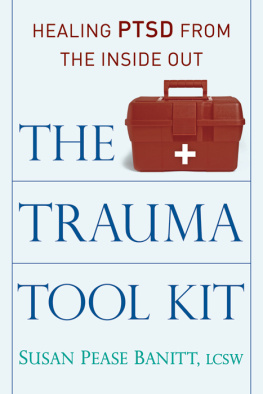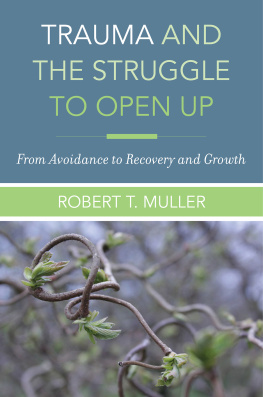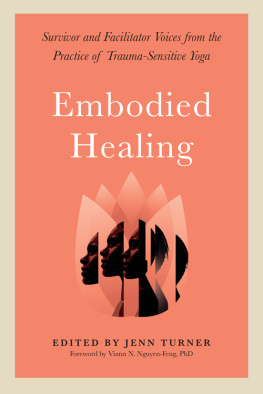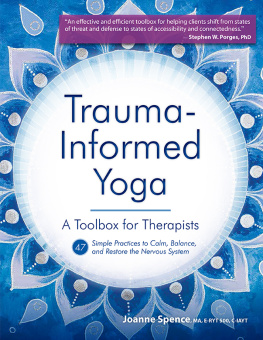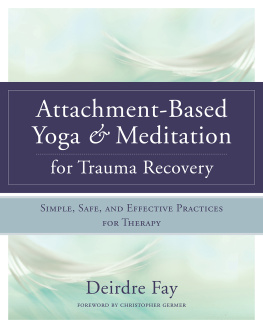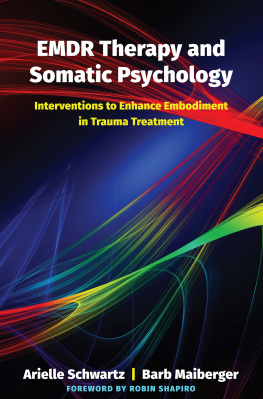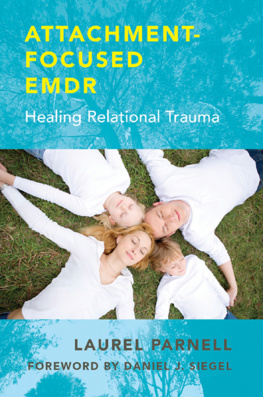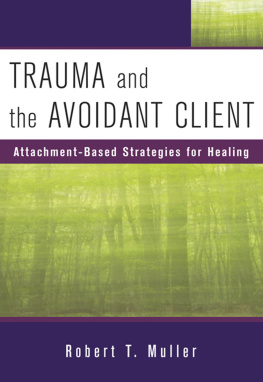Wisdom, Attachment, and Love in Trauma Therapy provides a sophisticated and compassionate understanding of how trauma therapists experience, train, and contribute to the healing of their heroic clients. In this well-written and integrated book, Susan Pease Banitt conveys a conceptual framework integrating principles extracted from contemporary neuroscience, psychology, and philosophic orientations to emphasize the features of successful therapy. Through her personal experiences, she emphasizes the importance of the therapist being present and accepting of the client. Perhaps most relevant to the trauma therapist, she provides a deep understanding of the vulnerabilities of the therapist, who may be a survivor of trauma.
Stephen W. Porges, PhD, distinguished university scientist and founding director of the Traumatic Stress Research Consortium, Kinsey Institute, Indiana University, and author of The Pocket Guide to The Polyvagal Theory: The Transformative Power of Feeling Safe
Susan Pease Banitt offers us more than a book; this is a mission statement on how many of us who work to bring healing to the wounds of trauma really feel about the state of our field. Pease Banitt, an expert at her craft, shares her much-needed voice as she teaches on one of the great clinical imperatives: its the relationship that heals. Practical, useful and integrative, any clinician working in trauma healing ought to have a copy of this book to develop in the art of this work.
Jamie Marich, PhD, LPCC-S, LICDC-CS, REAT, RMT, author of EMDR Therapy and Mindfulness for Trauma-Focused Care, Dancing Mindfulness: A Creative Path to Healing and Transformation, Trauma Made Simple, Trauma and the 12 Steps, and EMDR Made Simple
Susan Pease Banitt bravely challenges outmoded mindsets that have never served us as we work to heal trauma survivors. She asserts that our clients need to feel loved, that there is a place for touch in psychotherapy, that dissociated and later recovered memories are normal responses to trauma, and that we need sit in belief of what our clients tell us, including ritual abuse and trauma-based mind control.
Ellen Lacter, PhD, licensed clinical psychologist, registered play therapist, marriage and family therapist, past president of the California Association of Play Therapy, academic coordinator of the Play Therapy Certificate Program at the University of California, San Diego Extension
In this book, Susan Pease Banitt is able to integrate psychosocial history, cultural diversity, interdisciplinary sciences, interfaith spirituality and good old-fashioned common sense. She synthesizes complex information in ways that make sense of clinical chaos without resorting to reductionism. Her work has very practical applications beyond theory and empowers healing processes for clients and therapists alike. Pease Banitts brilliance stands out above the rest because her personal and professional lives are congruent and lived with a high level of integrity.
Ericha Scott, PhD, LPCC, ATR-BC, keynote speaker, creative arts psychotherapist, consultant, globally published researcher, and theorist in peer-reviewed journals
Wisdom, Attachment, and Love in Trauma Therapy
Wisdom, Attachment, and Love in Trauma Therapy focuses on the creation of the therapist as healing presence rather than technique administratorin other words, how to be rather than what to do. Trauma survivors need wise therapists who practice with the union of intellect, knowledge, and intuition. Through self-work, therapists can learn to embody healing qualities that foster an appropriate, corrective, and loving experience in treatment that transcends any technique. This book shows how Eastern wisdom teachings and Western psychotherapeutic modalities combine with modern theory to support a knowledgeable, compassionate, and wise therapist who is equipped to help even the most traumatized person heal.
Susan Pease Banitt, LCSW, is a social worker and psychotherapist who specializes in the treatment of severe trauma and PTSD. She has worked in the field of mental health for more than four decades in diverse settings and teaches classes on healing from trauma in Portland, Oregon. She is the author of The Trauma Tool Kit: Healing PTSD from the Inside Out.
Wisdom, Attachment, and Love in Trauma Therapy
Beyond Evidence-Based Practice
Susan Pease Banitt

First published 2019
by Routledge
711 Third Avenue, New York, NY 10017
and by Routledge
2 Park Square, Milton Park, Abingdon, Oxon, OX14 4RN
Routledge is an imprint of the Taylor & Francis Group, an informa business
2019 Susan Pease Banitt
The right of Susan Pease Banitt to be identified as author of this work has been asserted by her in accordance with sections 77 and 78 of the Copyright, Designs and Patents Act 1988.
All rights reserved. No part of this book may be reprinted or reproduced or utilised in any form or by any electronic, mechanical, or other means, now known or hereafter invented, including photocopying and recording, or in any information storage or retrieval system, without permission in writing from the publishers.
Trademark notice: Product or corporate names may be trademarks or registered trademarks, and are used only for identification and explanation without intent to infringe.
Library of Congress Cataloging-in-Publication Data
A catalog record for this title has been requested
ISBN: 978-1-138-28974-1 (hbk)
ISBN: 978-1-138-28975-8 (pbk)
ISBN: 978-1-315-21377-4 (ebk)
Typeset in Goudy
by Apex CoVantage, LLC
Contents
Part I
Wisdom
Part II
Attachment
Part III
Love
The meeting of two personalities is like the contact of two chemical substances: if there is any reaction, both are transformed.
Carl Jung, Modern Man in Search of a Soul (1933)
This book has the power to change the evolution of our profession. In the pages that follow, Susan Pease Banitt, LCSW, speaks to the budding movement of mental health providers who seek to integrate logic and intuition and to welcome psychotherapy as a science, an art, and a multidirectional process of healing.
Ive often called this multidirectional process of healing reciprocal transformation, meaning that when two, or more, people come together in the efforts of healing, all are transformed. In relationship, deep wounds can emerge in the form of transference, countertransference, and enactments. The gentle practices of awareness, compassion, and presence can bear witness to the hurt and allow us to transcend it, facilitating what we have come to call healing experiences. As we build these soft skills of awareness, compassion, and presenceones that are difficult to measure but necessary for healingwe cultivate a field of healing within ourselves and extend it to our clients. As any wise, experienced clinician will tell you, clients have solid BS detectors and will not stand for feigned anything. In order to improve our own skills, we must look honestly into ourselves and cultivate the qualities that serve us, as well as our clients. This inner work on the part of the clinician is crucial, and developing awareness of our own coping strategies serves to improve the quality of our work. By acknowledging our own limitations, we can learn to transcend them.


